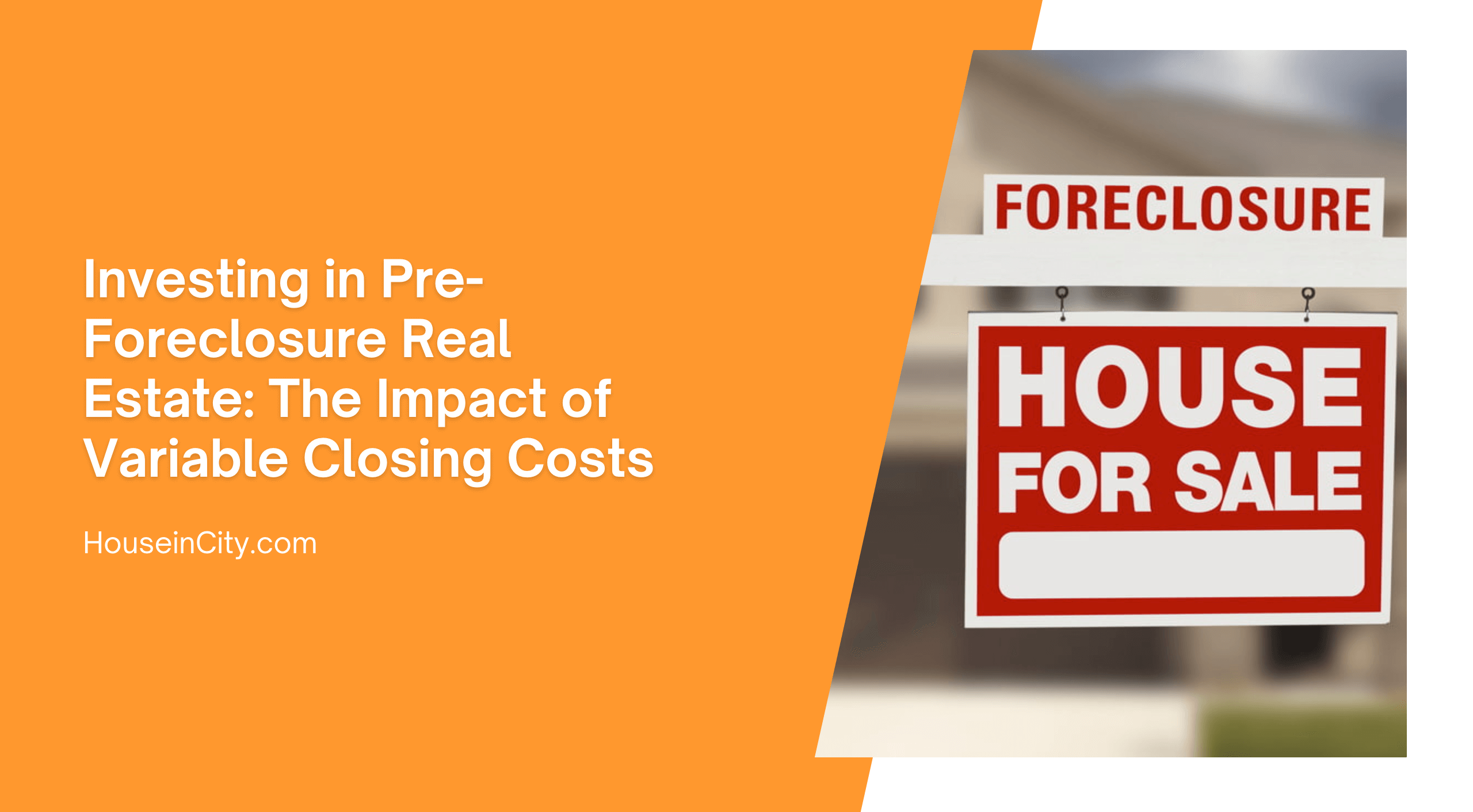Foreclosures are at record high numbers. With these real estate statistics showing no sign of diminishing, many homeowners, and lenders, are turning to private investors in an effort to sell a home before foreclosure processes begin.
As an investor of real estate, there are many advantages to purchasing real estate that is in foreclosure, or about to be in foreclosure. The most obvious, of course, is the potential for acquiring a piece of real estate at a fraction of the appraised value.
When considering pre-foreclosure properties as your real estate investment, there are fees that will be necessary as part of the closing costs. To ensure your investment is well protected, it is important to be familiar with these closing costs, also commonly referred to as property acquisition expenses.
Because closing costs are not a formula based calculation, many real estate investors find this area of real estate acquisition to be of particular concern. While there are some fees that are relatively consistent from property to property, i.e. attorney’s fees and those fees associated with document processing and title company fees, there are other fees that are not consistent.
Inconsistent fees may include the cost to record the property with your local deed recording government agency, costs associated with tax and insurance, the requirement to carry PMI (private mortgage insurance) as well as the fees associated with any assessments the city or county may impose for recent improvement to the neighborhood or community. In addition, title insurance is also an area that must be addressed.
Because these factors, and associated costs, are variables in the real estate investment process, it is important that you first look at the possible costs associated with each before deciding to purchase a pre-foreclosure property. Most often, the one cost real estate investors fail to estimate correctly is the cost associated with the various insurance protections required to secure the property.
In addition to these closing costs, be sure to also calculate the expected amount of time it will take for you to flip the home into a sale for yourself. Once this time is estimated, consider costs associated with the utility payments, the costs associated with lawn care and, if the home has a pool, the costs associated with the pool maintenance.
As a real estate investor, the purchase and acquisition of a pre-foreclosure home is a great way in which to acquire good, solid real estate investments while providing relief to a lender and a borrower who are in distress. When considering a pre-foreclosure investment, remember to take into consideration these associated fees and closing costs as they may impact your ability to maintain the property after you have acquired it.
